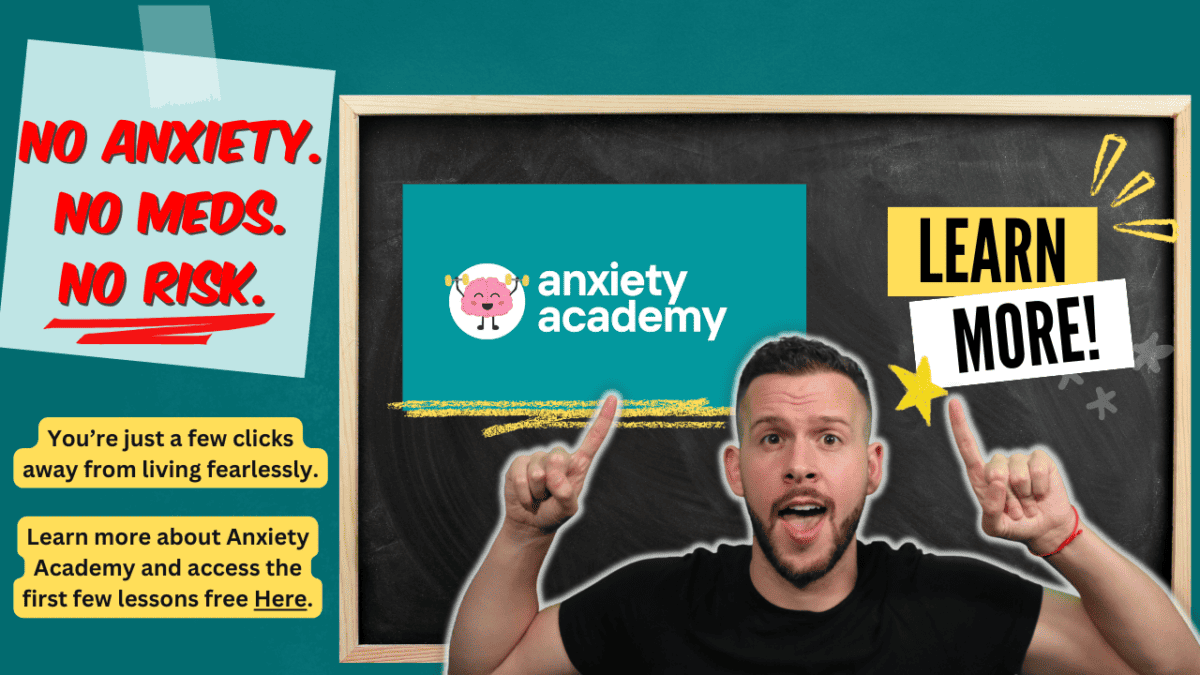Anxiety attacks are accompanied by a host of symptoms, such as nervousness, nausea, rapid heartbeat, chest pain or pressure, trembling, dizziness, shaking, chills, and more. A few symptoms can even be felt in the tongue and, while you might not expect it, these sensations might actually provide helpful information about what is actually going on.
These symptoms can be scary to experience, especially if you do not understand where they are coming from. Fortunately, studies are increasingly revealing explanations for each sensation, as well as tips and tricks to remedy them. Listed below are some symptoms of anxiety related to your tongue.
8 Anxiety Tongue Symptoms to Watch Out For!
1. Metallic Taste
Anxiety and stress cause all sorts of changes in your body; if your tongue tastes metallic, it's likely not an illusion. Many people experience a persistent metallic taste when they are anxious. This condition is called dysgeusia. [1]
High levels of cortisol (a stress hormone) or norepinephrine (a neurotransmitter intended to regulate stress) can inflame the gums in your mouth. Inflamed gums are susceptible to bleeding, which would contribute to an overall metallic taste.
2. Tingling Sensation
When you are anxious, your body goes into fight-or-flight mode, which triggers physically tense responses like constricted blood vessels. When blood vessels are constricted, blood flow is significantly lower. Low blood flow causes numbness or tingling sensations in the affected area. [2]
While a tingling tongue is a disorienting, uncomfortable sensation, it is a relatively common symptom and often resolves after a few moments. Some people with anxiety are prone to tics or sudden habitual movements they cannot control. Tics like chewing or sucking could injure the tongue, causing tingling or numbness.
3. Dryness
Anxiety attacks are often characterized by pressure in the chest, and intense, shallow breathing. Naturally, this level of rapid air intake will dry out your mouth and reduce saliva production, causing a condition called xerostomia. [3]
You can remedy a dry mouth and cracked lips by slowly and conscientiously drinking a glass of water while anxious. Since saliva is essential for digestion and oral health, do your best to stay hydrated.
Since this symptom of anxiety affecting the tongue can also affect the rest of the mouth, now's a good time to mention... For more symptoms of anxiety affecting the mouth as a whole, check out this article on anxiety mouth symptoms!

4. Bitter Taste
Similar to the causes of a metallic taste, excessive cortisol and norepinephrine levels can also distort your tastebuds' ability to differentiate between salty and sweet foods, leaving a bitter taste behind. Dysgeusia, the condition that causes people to perceive sour foods as sweet and vice versa, can indicate a vitamin deficiency or untreated infection.
This anxiety tongue symptom could also suggest that a medication may be causing these unintended side effects. To regulate your taste, follow a balanced diet that will provide you with a healthy, regular intake of necessary vitamins and nutrients.
5. Burning Sensation
Though the burning sensation is an unusual symptom of anxiety, those who experience it can feel it everywhere; from their eyes and their extremities, to their lips and tongue. Burning Mouth Syndrome, or BMS, is characterized by a prickling, scalding sensation. It can feel as if there is a sunburn on the inside of your mouth, especially toward the front.
Women experience BMS almost five times more often than men, often during middle age or menopause. Researchers postulate that the burning sensation is caused by overstimulated nerves; the feeling usually comes and goes. Stick to mild food to avoid exacerbating it. [4]
6. Numbness
Under elevated stress, your muscles will tighten and constrict blood flow, possibly causing them to grow numb. Since your tongue is an independent muscle, elevated stress can quickly numb it. Your nerve cells can also misinterpret stimuli when you are anxious, which can lead to the misconception that your tongue has lost feeling.
To help your tongue return to feeling normal, try doing breathing exercises. Mindful breathing will increase the amount of oxygen your body is getting, which will increase blood flow throughout your muscles and help them (including your tongue) return to experiencing stimuli as normal. You can learn a really great breathing exercise for anxiety here.
The numb feeling should go away after a few minutes. See a health professional if it doesn't go away after a few hours.
7. Phantom Smell/Taste
Stress and anxiety can rewire the brain, making your body feel and experience things that may not really be there. Anxious people sometimes report phantom smells or tastes that affect their tongues. Phantosmia, which is an olfactory hallucination, can cause you to smell something that isn’t there or transform a neutral smell into an unpleasant one.
Researchers believe that this is largely due to the fact that anxiety causes us to view the world negatively and perceive threats that aren't real; including foul smells or tastes. Finding something that smells pleasant, like a candle or flowers, can help calm your brain by providing it with a safe-smelling stimulus. [5]
8. Difficulty Swallowing
In addition to the tongue feeling numb or disoriented, when you are anxious your tongue can feel so swollen that you may have difficulty swallowing. This symptom often goes hand-in-hand with the commonly acknowledged 'lump-in-your-throat' sensation called Globus pharyngeus. [6]
Similar to relieving numbness, you can relieve this tightness by practicing steady breathing. Even if your mouth feels too tight to do so, intentional, steady breathing through the nose can provide your blood vessels with some much-needed oxygen and help your tongue relax. If you have trouble breathing deeply, consult a medical professional.

Seek Medical Assistance
The human body is incredibly complex. Anxiety tongue symptoms arising when we are anxious or stressed can often feel quite alarming. Though you may be worried if your tongue feels swollen or numb, remember that breathing exercises can help promote healthy blood flow.
Although bitter, metallic, or burning tastes and sensations can be extremely uncomfortable, they usually are not causes for alarm. Stick to simple, plain foods, and minimize extreme stimuli, and your tongue should soon return to normal.
As always, if concerning symptoms persist for prolonged periods of time, consult with your doctor or another medical professional. Your tongue is an important, central part of your sensory system and its responses to stimuli are designed to provide critical information in times of need.
Anxiety medication and other prescriptions are designed to combat many of these oral symptoms, so take advantage of the resources available to you!
How to Manage Anxiety Tongue Symptoms
These anxiety tongue symptoms can definitely be frustrating or upsetting. I'm sorry you're dealing with them right now!
The first thing you should do is verify with a medical professional that these are not symptoms of something more serious. Once you're sure these are tongue symptoms from anxiety, however, I think I can help out a bit! I recently wrote a book teaching over a hundred different methods for reducing symptoms of anxiety and panic. I think it could be a lot of help here... give it a read and let me know what you think!
Sources
[1] Cleveland Clinic - Dysgeusia
[2] National Library of Medicine - Autonomic and Endocrine Control of Cardiovascular Function
[3] American Dental Association - Xerostomia (Dry Mouth)
[4] National Institute of Dental and Craniofacial Research - Burning Mouth Syndrome
[6] British Journal of General Practice - Globus pharyngeus: an update for general practice


